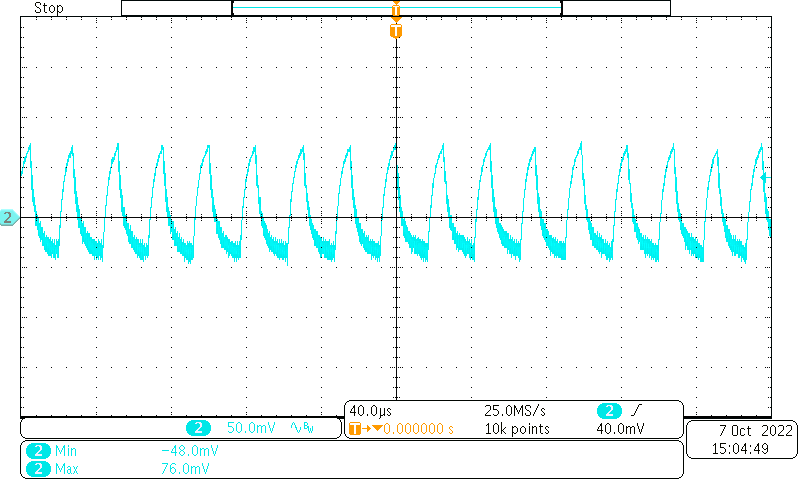TIDT382 February 2024
- 1
- Description
- Features
- Applications
- 1Test Prerequisites
- 2Testing and Results
- 3Waveforms
- 4Summary
- 5References
3.3.3 UCC14130-Q1 Input Voltage Ripple
The UCC14130-Q1 input voltage ripple waveform is shown in the following figure.

Channel 2: AC coupled Input Voltage Ripple at 15 VOUT and 100mA load current, bandwidth limited (20MHz), [scale: 50mV/div, 40.0μs/div]. The input voltage ripple was measured at input capacitor C33.
Figure 3-11 UCC14130-Q1 Input Voltage Ripple